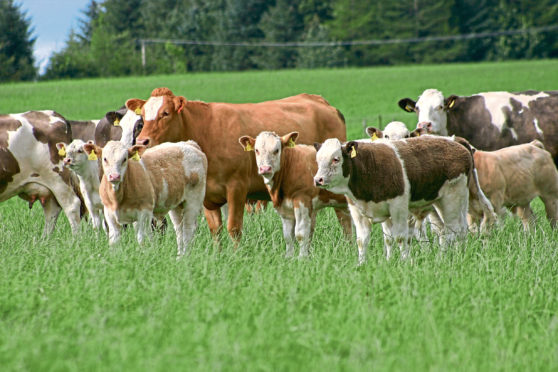New rules in the battle to eradicate bovine viral diarrhoea (BVD) from Scotland’s cattle herd come into force next Monday, when farmers are required to house all animals identified as being persistently infected (PIs) separately from the core herd.
The expectation is that the new requirement to isolate PIs will not just protect the national herd against further infection, but will also serve as a deterrent against holding on to infected stock.
Official inspections are currently suspended due to Covid-19, but farmers have been warned those herds retaining PI animals will be subjected to unannounced visits in future to ensure suitable isolation facilities and protocols are in place.
The latest figures indicate 48 of 10,061 Scottish holdings being tested and screened for BVD still retain PI cattle, and they own the 122 PIs out of 535,000 cattle tested.
While PIs need to be isolated, the rules allow for a low-risk non-PI animal to be housed alongside a PI for reasons of animal welfare.
Farmers are also required to practise good biosecurity between PI animal(s) and the rest of the herd, with cleaning and disinfection of outerwear and equipment between the different groups.
NFU Scotland’s animal health and welfare manager Penny Middleton said great strides have already been made by Scottish cattle keepers in eradicating the costly disease from herds. She added: “However, persistently infected animals are the biggest cause of spreading BVD and best practice involves removing them from a herd as soon as they are identified.
“Where herds choose to retain these high-risk animals then housing and isolation can prevent further spread of infection within the herd, but more importantly can help protect neighbouring herds from infection.
“Many of those neighbours will have invested significant time and money in BVD-eradication plans that risk being undone through any contact with PI animals”.
